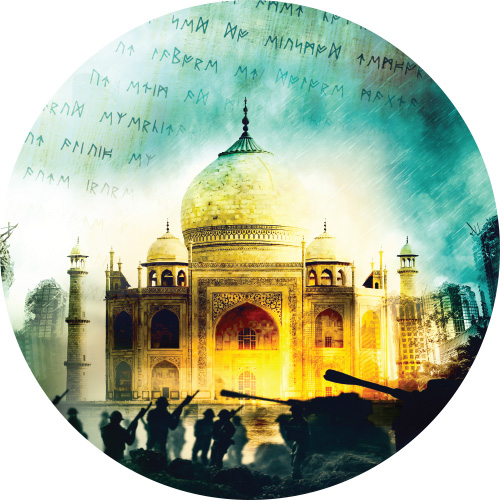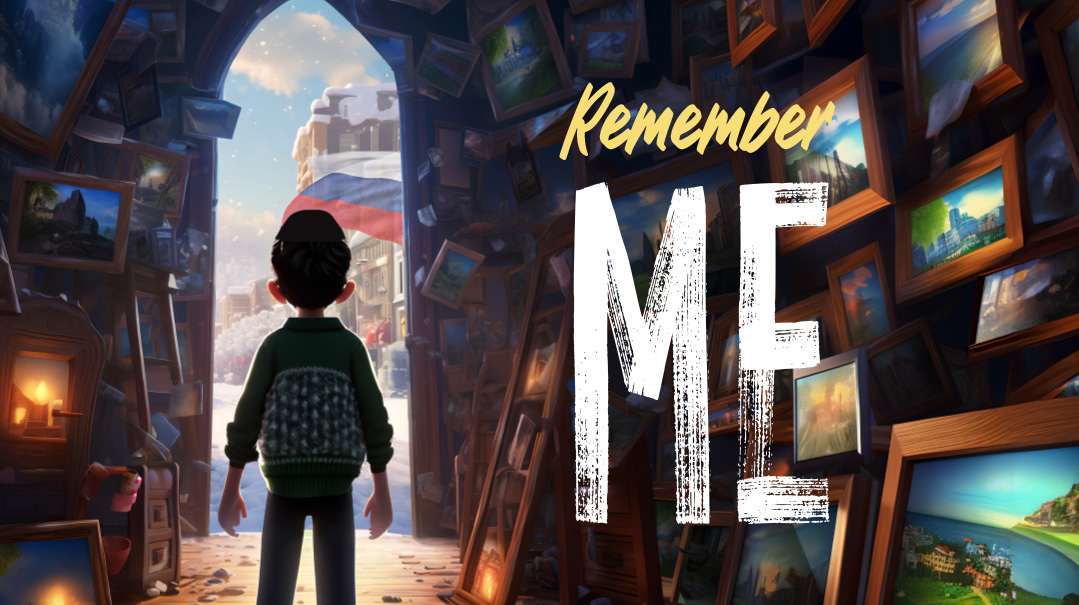Home Ground: Chapter 4
| January 31, 2023I get it, there’s a uniform, but come on. Where’s the individuality, the funky hair accessories, the hairstyles that suit the face, not just the fashion?

“Where did you say you’re from?”
The girls clustered near my desk — around half the class — are wide-eyed and curious. A few rows behind me, the rest of the class gather round another desk, where two girls, one dirty-blonde and tall, the other her dark sidekick, are holding court.
I’ve been a member of tenth grade — sorry, Year 10, welcome to England — at Peninas Bais Yaakov (PBY to insiders, apparently) for all of one hour, and I hate the place already.
It’s just so… same.
Everyone looks the same. Matching navy-blue sweaters and pleated skirts. Matching low ponytails. Around half of the girls wear glasses, and yup, they look like they’ve bought the frames at exactly the same store.
Is this what high school is like? I get it, there’s a uniform, but come on. Where’s the individuality, the funky hair accessories, the hairstyles that suit the face, not just the fashion?
I look down at my own navy-blue ensemble. Uniform, ugh. It feels weird and foreign, though admittedly, without any of my own clothes — no sign of the suitcases, and it’s been a week since I arrived – everything feels weird and foreign on me.
“She said India. Right?” A bookish-looking girl with angular features looks at me questioningly. I zone back into the conversation.
“Yup,” I say. Come on, we’ve had this conversation six times since I entered the classroom this morning. None of them can think of anything more interesting to say?
“India, so cool.” It’s like a chorus of replies, ten voices saying the same thing. I feel like this class needs a conductor.
The dirty-blonde girl on the other side of the room slides off her desk and ambles past, on her way to the lockers. Her friends drift over.
“Where’d you go to school till now?” Miri, whose desk is on my left, asks curiously. (At least I know one name. And that, only because every one of her possessions is personalized, monogrammed, embossed or embroidered with the word Miri in curvy script.)
“I didn’t.” I can’t be bothered explaining the online school situation.
“No school? Lucky you,” sighs a round-faced girl who I think is called Shevi. The day had started with a schoolwide assembly in the auditorium (the hall, they call it, conjuring up images of the entire school camping out in the hallway for the principal to deliver a few words of welcome), and we’ve only had one period so far in the classroom. That had been with Mrs. Gerber, our mechaneches, who’d given out books and schedules and instructions and then told us a long mashal about fresh starts and Elul and the new school year.
After recess, apparently, classes start for real.
“Not sure how lucky I call it,” someone drawls. I turn, and sure enough, it’s the dirty-blonde from the back row. She has her entourage around her and she’s giving a little smirk, which I suspect might just be her regular expression. “I mean, I wouldn’t cooooope doing nothing all day. No offense,” she adds quickly, in my direction.
Of course not. No offense is taken, I want to say, sarcastically. I’ve never been to school before, but even I know a classic class queen when I see one.
Forget that it’s exactly like I’d spent my days “doing nothing.”
“Hey, Miss Berger’s here,” someone points out. I turn to the front of the classroom, where a teacher is waiting in the doorway. I guess she’s a teacher, because she’s — drumroll — not wearing uniform, but she looks so young. I’m just not used to this. Our teachers in the online school were all, like, Ima’s age. Or Bubby’s.
I wait for everyone to take their places, but it seems like Miss Berger is a little different from our mechaneches. Some girls saunter over to their desks, others just stand around, continuing to chat. A few of them breezily greet the teacher.
“Hi, Miss Berger.”
“How was your summer? Did you miss us?”
“Are we really having Maths on the first day?”
“Can we talk about our experiences over the holidays?”
Miss Berger smiles as she comes inside. She doesn’t seem too bothered by the informality — or even, dare I say it, the immaturity of some of the comments. “Sit down, everyone. Welcome to our school, Ashira. And welcome back, everyone else.”
Girls start to move toward their places. A few of them call out questions about textbooks and exercise books (no, nothing to do with gym class. I don’t get why they can’t call them workbooks). It’s just far more casual than I imagined school to be. But I guess different classes, different teachers, different flavors, whatever.
Miss Berger switches on the screen at the front of the room and inserts a USB somewhere at the side. Cool, she’s teaching with a slideshow. That feels familiar.
The first slide shows a selection of food items — a slice of pizza, Coke can, potato chips, doughnuts, some other stuff. Each one has a price tag, but the tag has a mathematical equation rather than a number attached to it.
Apparently, we’re starting off with a game. To ease the transition back into things, I suppose.
I’m not complaining. Games are fine by me. And I know the material, too. At least numbers are the same in British English, ha.
When we’ve worked out the prices of each item, Miss Berger fires off a round of questions — which item is the most expensive? Which is cheapest? Which three items together can you buy with £10?
For each question, she calls on a girl to answer, and of course, I’m chosen for question number two, probably just to prove that she’s not going too easy on the new girl. Well, it’s fine with me.
“The chips are the cheapest,” I tell her confidently.
Miss Berger’s “encouraging smile” falters. “The cheapest?” she repeats.
“Yes — I think?” I look around. There are a bunch of confused faces. “I got 75 cents — or whatever you call it — for the chips.”
Miss Berger’s face clears. “Oh! You mean the crisps.” She points at the picture on the smartboard. “In America, you’d call them potato chips.”
“Wait, what do you call chips then?” a girl calls out.
“French fries!” someone else shouts, in a fake American accent, and everyone laughs.
For some reason, even though it’s totally not my fault, and it’s legit a mistake, I feel embarrassed. I sounded so dumb, messing up a question like that. Chips, crisps, chips, fries, the words are confusing and annoying, and even Miss Berger’s lips are twitching. Suddenly, I just want out of here.
Out of this class, with their foreign accents and foreign words and matching hairstyles.
Out of this country, where everything is so different from what I’m used to, to India, of course, but even so different from what I’ve seen on our trips to my grandparents and cousins in the States (somehow, that feels so much more familiar. Maybe because my online school was all American kids?)
So much for Math class being simple, for numbers to be the same in every language.
Miss Berger doesn’t call on me again for the rest of class, and I don’t volunteer anything either.
When class is over, some of the girls gather near me again. They’re not interested in me for me, they’re just interested in the sensation, the newness.
“So, tell us about India,” invites a girl with a heart-shaped face and a smile that showed flashes of braces and raspberry-pink elastics.
Maybe she’s genuinely curious, maybe they just want to gasp and giggle over the strangeness of the place where I live.
But I’m not interested. I’m not here to be flavor of the month.
“There’s not much to say,” I tell them, throwing a sickly-sweet smile. “It’s just a place.”
To be continued…
(Originally featured in Mishpacha Jr., Issue 947)
Oops! We could not locate your form.




